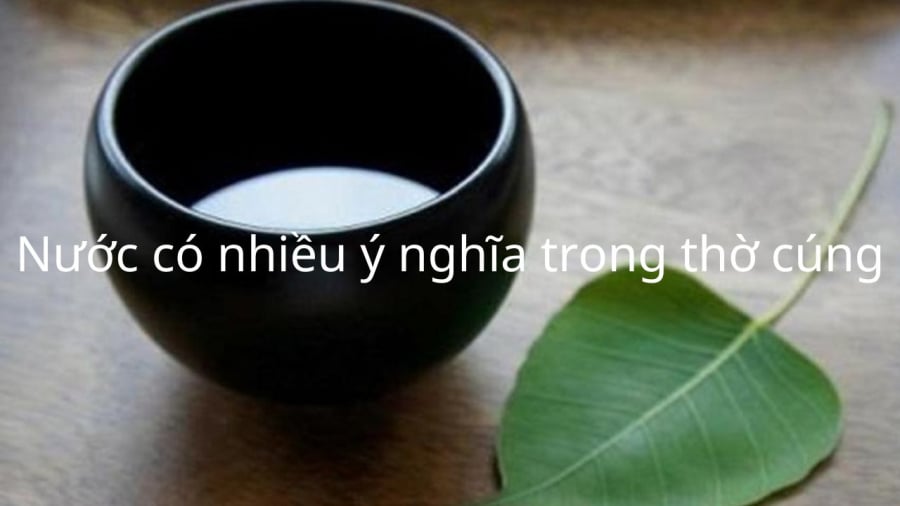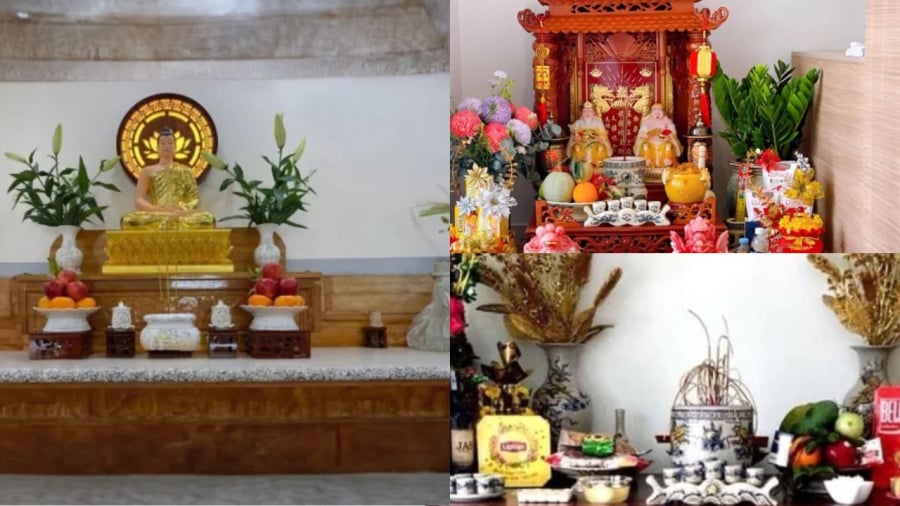Meaning of water offering?
Water is like betel leaves, fruits, medicinal tea, and cakes that are almost indispensable when making offerings. Even other items can be omitted, but when making offerings, water on the altar cannot be missing. Water on the altar is like water in life, life does not exist without water.
Offering water on the altar ensures the elements of Metal, Wood, Water, Fire, and Earth in worship. Water is the source of life, the indispensable offering in life. Water in feng shui is also a lucky element.

Water carries sacred meaning in worship culture
When making offerings on the ancestral altar and the Spirit altar, water is an offering to be used as food and to seek blessings.
When offering water on the Buddha’s altar, the water is used to reflect and cultivate the soul. Pure water is used to reflect oneself.
What kind of water should be used? Filtered water, tea, soft drinks, alcohol?
When offering to the Buddha, the water here is used to reflect oneself. Therefore, when offering to the Buddha, choose filtered water that can be boiled or lukewarm water as long as it is clean and pure, so that Buddhists can see the purity and remind themselves. Therefore, when offering to the Buddha, only use filtered water, not sweet water or colored water such as tea, coffee, fruits… Especially, do not use alcoholic or carbonated water as an offering to the Buddha.
On the ancestral altar: The water on the ancestral altar is reserved for the deceased to use, so in ancient times, people believed “the ghosts use lukewarm water.” Therefore, many places will use lukewarm water instead of water poured from a hot-cold faucet, not water poured from a bottle, and not water boiled and cooled. However, the belief in many places is different, so it will depend on whom you worship to choose the suitable water. Therefore, besides having filtered water cups, there will be other types of water such as milk for children, tea for those who like tea while alive, alcohol for those who like alcohol while alive, soft drinks or coffee for those who like coffee while alive. There may even be all kinds of water for ancestors to use and to “invite” neighbors and relatives.

Different ways of offering water on the Buddha altar, ancestral altar, and Spirit altar
On the God of Wealth altar: Water in worshiping the God of Wealth symbolizes gathering of water. Therefore, water on the God of Wealth altar is usually filtered or lukewarm water, as long as it is clean and offered with respect, not leftover water. On the God of Wealth altar, there is often additional alcohol because the God of Wealth likes to eat roast meat and drink alcohol, and sometimes there is also beer and soft drinks.
Note that no matter what kind of water is used, it is necessary to offer with sincerity and pay attention to the source of water, absolutely do not use dirty water for worship. Alcoholic beverages, beer, and soft drinks with unclear origins should not be offered, do not place expired water for worship.
How many new cups should be placed? Is it necessary to use water cups?
In worship items, people sell water cups consisting of 3 or 5 cups. These water cups are usually placed in front of the incense burner. However, some families use water cups, while others use regular cups or glass cups. In fact, water cups are simply a design to replace the use of a regular tea set, to harmonize with other items on the altar. Whether a family uses water cups or regular cups to hold water does not matter.
Whether to place 1, 3, or 5 cups depends on the structure of the altar and the remaining space on the altar, it does not affect the spiritual meaning of worship, it is just that even numbers like 2, 4, 6 cups should not be used. Usually, on the Buddha’s altar, only one glass of pure water is needed, on the ancestral altar and the Spirit altar, there are usually 3 cups and some bottles of water, beer, and soft drinks behind.
Note when worshiping water: After lighting incense, pay attention to avoid spilling water around the worship area. If offering wine or tea, soft drinks, after lighting incense, lower the water, avoid leaving them for a long time until they turn yellow or smell on the altar. As for filtered water, you can leave it until the next offering preparation and then change the water.
Information is for reference only






























